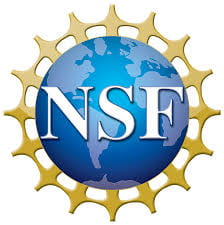Research grants
| Projects | Sponsor | Period | Status |
| FW-HTF-P: Designing a Market-based Optimization Tool for the Future of Work: Balancing Remote Work and Community Vitality in Post-COVID American Cities | NSF | 1/2022-12/2022 | Active (PI) |
| LEAP-HI: Re-engineering for adaptable lives and businesses (please check out our project website) | NSF | 2021-2025 | Active (PI) |
| A Whole-Community Effort to Understand Biases and Uncertainties in Using Emerging Big Data for Mobility Analysis (Please check out our project website) | NSF | 2021-2024 | Active (PI) |
| SCC-PG: Building capacity for data-driven physical activity interventions in communities with depression and obesity hotspots | NSF | 2020-2022 | Active (co-PI) |
| JST: SCC-PG: Socially-integrated Technological Solutions for Real-time Response and Neighborhood Survival After Extreme Events | NSF | 2020-2022 | Active (PI) |
| RAPID: Collaborative Research: Modeling and Learning-based Design of Social Distancing Policies for COVID-19 | NSF | 2020-2022 | Active (PI) |
| TOMNET Tier 1 Center | USDOT (RITA) | 2016-2023 | Active (co-PI) |
| Real-time prediction of movement patterns during disaster times | 2018- | Active (PI) | |
| Promises of data from emerging technologies for transportation applications: Puget Sound Case Study | FHWA | 2018-2020 | Archived (co-PI) |
| 3-population 3-scale social network model to assess disease dispersion | NIH | 2015-2022 | Active (co-PI) |
| Inferring failure propagation patterns from post-disaster disruptions data | NSF | 2015-2020 | Archived (PI) |
| Promises of data from emerging technologies for transportation applications | FHWA | 2017-2018 | Archived (co-PI) |
| The connected traveler: a framework to reduce energy use in transportation | DOE | 2015-2018 | Archived (co-PI) |
| Further development of a conceptual framework for assessing resilience at community scale | NIST | 2015-2017 | Archived (co-PI) |
| Investigating the interaction between individual activity-travel patterns and the spreading of infectious diseases | Planning grant funded by Vinnova, Sweden | 2015 | Archived (PI) |
| Using cell phone data to analyze the continuum and life cycle of disaster in spatio-temporal movements | NSF | 2012-2015 | Archived (PI) |
| An innovative survey to understand sustainable travel behaviors | Region 10 UTC Center | 2012-2013 | Archived (PI) |
| Development of residential location choice models | Region 10 UTC Center | 2010-2011 | Archived (PI) |
| Advanced applications of person-based GPS in urban environments | Region 2 UTC Center | 2009 | Archived (PI) |
| Effectiveness of traffic calming measures | NYCDOT | 2008-2011 | Archived (PI) |
| Vehicle impact assessment on bridges in New York State | NYCDOT | 2008-2010 | Archived (PI) |
| Accounting for past experience in residential location choices | Region 2 UTC Center | 2008-2009 | Archived (PI) |
| Feasibility of a passive GPS-based travel survey in NYC | CUNY Collaborative Award | 2009 | Archived (PI) |
| Spatial analysis of pedestrian crashes | PSC-CUNY | 2008-2009 | Archived (PI) |
| Evaluation and testing of regional land use and transportation model | New York Metropolitan Transportation Commission | 2006-2009 | Archived (PI) |
| GPS Pilot Project | New York Metropolitan Transportation Commission | 2007-2008 | Archived (PI) |
| Quantifying temporal and spatial dimensions of accessibilities | Region 2 UTC Center | 2007-2008 | Archived (PI) |
| Role of built environment in people’s mode choice decisions | PSC-CUNY | 2006-2007 | Archived (PI) |
| Public Transit in New York City | Region 2 UTC Center | 2005-2006 | Archived (PI) |
| Development of a dynamic discrete choice model for residential relocation choices | PSC-CUNY | 2005-2006 | Archived (PI) |
| Impacts of extreme events on intercity passenger travel behavior: the WTC experience | NSF | 2003-2004 | Archived (collaborator) |
Sponsors:








